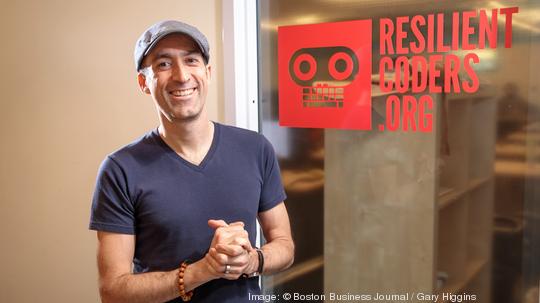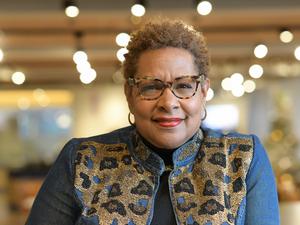
2020 marked a year of revolution.
With an increased spotlight on police brutality and a 150% increase in Asian hate crimes nationwide, America has been at a standstill navigating ways to address racial equity.
Correspondingly, emerging tech startups are facing the same pressure to refocus their hiring methods to better include marginalized groups. Only 11% of science and engineering tech jobs are held by Black, Latinx and Native American workers, according to STEM education nonprofit, SMASH.
Amy Spurling is founder of Compt, a human resources software finance company that partners with emerging companies to help employees manage stipends and aid employers in directing their teams around diverse decision-making.

Spurling values being intentional in diverse hiring tactics. As a former top executive at six prior tech companies, she says the bulk of people who made up that field were largely white males. By contrast, 68% of Compt’s own employees are people or color, and 38% are women.
“When you are a small, homogenous group that starts a company and then you pay for things for people you have, then you attract more of that same exact group of people,” Spurling said.
Through her work in Compt, Spurling hopes to encourage the companies in her network to gain diverse hires.
Despite seeing her network of companies shift their stipend focus to social issue donations and charitable causes by 3,000% this year, Spurling believes that emerging companies need to work harder to encourage diverse thinking and hiring. “In my opinion, it is on the founders to make sure that happens. You shouldn't have to hire somebody to figure out how to add more people of color to your team,” Spurling said.
David Delmar Sentíes, founder of Resilient Coders, a nonprofit that trains Black and Latinx people to be software programmers and help them find jobs in the tech industry follows a similar thought process as Spurling regarding DEI.
As a Latino in tech, Delmar Sentíes is a rarity: Latinx folk make up just 8% of all STEM positions.

“It's a very rare occasion that a tech CEO or CTO will wake up one day, and just be like, ‘let’s overhaul this industry’ with diversity,” Delmar Sentíes said.
He says that diversity usually begins at the grassroots of a company with employees who demand change. To Sentíes, it takes an employee who is not satisfied with tokenism and demands the opportunity for economic justice.
“We can make up all types of acronyms — DEI, JEDI, whatever — but if we’re not actually sharing power, if we’re not recalibrating power in America, then what’s the point?” Delmar Sentíes said.
Out of Resilient Coders’ 2020 cohort, 80% landed full-time programming careers, but even with that effort, many still face the harsh reality of being one of few people of color in their tech space.
Delmar Sentíes believes that emerging tech startups should focus on letting Black and Latinx people lead diversity efforts.
“I love our allies, we have a lot of wonderful allies. But this notion of what is and what is not equitable practice in tech, must be drafted led by Black and Latinx people to completely shift company culture,” Delmar Sentíes said.








